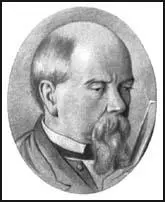Thornton Leigh Hunt

Thornton Leigh Hunt, eldest son of James Leigh Hunt and Marianne Kent, was born in London on 10th September, 1810. When Thornton was two years old his father, the editor of the Examiner, was arrested and charged with libel after he published an article criticizing the Prince Regent. Hunt was found guilty and sentenced to two years' imprisonment. Thornton's earliest memories involved visiting his father in prison and appeared to have an influence on his future views on journalism.
James Leigh Hunt wanted his son to be an artist and arranged for him to study the subject in Italy. However, Thornton realised he did not have enough artistic talent and decided on a career in journalism. He worked for the Constitutional before being appointing editor of the North Cheshire Reformer. He later moved to the Glasgow Argus but developed a national reputation by writing articles for the Spectator and the Morning Chronicle.
In 1855 Joseph Moses Levy invited Hunt to join the recently established Daily Telegraph. Hunt helped Levy's son, Edward Levy-Lawson, to edit the newspaper. Soon afterwards Hunt wrote a report on the possible future of the Daily Telegraph: "We should report all striking events in science, so told that the intelligent public can understand what has happened and can see its bearing on our daily life and our future. The same principle should apply to all other events - to fashion, to new inventions, to new methods of conducting business."
Thornton Leigh Hunt, who was the main figure in shaping the early Daily Telegraph, died on 25th June, 1873.
Primary Sources
(1) Thornton Leigh Hunt, memorandum sent to Joseph Moses Levy (1855)
We are only now at the beginning of a new era in science and let us not forget that science is to be taught in every school. Our policy should be one of making the leading daily paper take the lead also in that department of general yet special intelligence.
We should report all striking events in science, so told that the intelligent public can understand what has happened and can see its bearing on our daily life and our future. The same principle should apply to all other events - to fashion, to new inventions, to new methods of conducting business.
A paper of high authority should always have at command such men as can write with correctness, certainty, distinct force and authority on military, on naval affairs, on law.
(2) Harry Levy-Lawson, The Story of the Daily Telegraph (1955)
The editorial columns of the Daily Telegraph at this time (late 1850s) show more evidence of the mind of Thornton Hunt or his leader writers than of its proprietors who were still fumbling with editorial direction. Persistently the Daily Telegraph pursued its campaign for the reform of the House of Lords - "the chartered lords of misrule ogling in the ancient face of bigotry".
